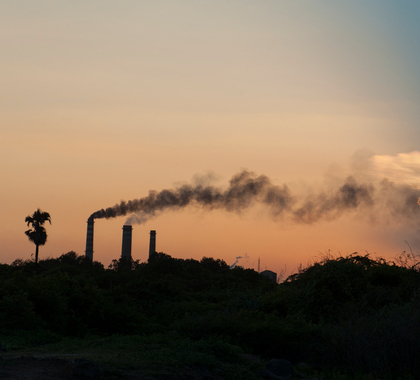WE Energies has announced it plans to close the Pleasant Prairie coal-fired power plant in southeastern Wisconsin. WE Energies says closing the power plant and building a new solar installation will save consumers money in the long run and help the utility company comply with Obama-era regulations limiting carbon dioxide emitted from power plants.
WE Energies is electing to close the plant despite the fact the Trump administration is currently working to repeal the regulations WE Energies says it’s trying to comply with.
According to data from the U.S. Energy Information Administration, only two power plants in Wisconsin generated more electricity in 2015 than the Pleasant Prairie power station, which was responsible for 12.7 percent of all electricity generated statewide.
Despite WE Energies’ promises of lower prices for consumers, the premature closure of the Pleasant Prairie coal-fired power plant will drive up electricity costs for families, businesses and manufacturers. On average, existing coal-fired power plants generate electricity for about 40 percent less than new natural gas plants and 350 percent (3.5 times) less than solar installations.
Closing Pleasant Prairie will not only raise consumer electricity prices, it will do so while providing few, if any, environmental benefits. WE Energies plans to close the plant to comply with the Obama administration’s Clean Power Plan, which sought to reduce greenhouse-gas emissions from power plants by 32 percent below 2005 levels by 2030. The Obama administration claimed at the time it created these limits to help stop man-caused climate change.
However, even the climate models used by President Barack Obama’s own Environmental Protection Agency found that if the entire country were to comply with the Obama regulations, it would avoid just .018 degrees Celsius of warming by 2100, an amount too small to be measured with even the most sophisticated scientific equipment. This is precisely why the Obama regulations were put on hold by the Supreme Court in 2016 and are likely to be repealed or replaced by the Trump administration.
By now, the reader may be asking themselves, “Why would WE Energies want to shut down Pleasant Prairie if it will raise electricity prices and fail to help the environment?” The answer is because WE Energies will likely benefit financially from the decision.
Imagine a scenario in which you are reimbursed for everything new you purchase for your home. Appliances that were once serviceable would suddenly become replaceable. Sure, the dryer might still be working, but it’s getting old. The cabinets might not be falling apart, but they look outdated. If someone is going to reimburse you for new purchases, why wouldn’t you make those costly changes?
Now, imagine if you were paid a profit to replace things in your own house using other people’s money. The couch you bought a few years ago would suddenly be on the chopping block, as would the refrigerator, which still works, but seems to be making a weird noise.
This is essentially how public utility companies such as WE Energies are now being paid. In public energy policy, this arrangement is called “rate-of-return regulation,” and it allows utility companies to get paid extra cash for building more equipment and generating capacity than they need.
The incentive to overbuild to increase corporate profits is obvious under this scheme, so public service companies must justify their expenses to the state Public Service Commission. The role of the PSC is to ensure electricity consumers are not being unfairly charged for unnecessary spending by utility companies. What PSC does will not determine whether Pleasant Prairie will be permitted to close, but it should scrutinize plans to replace perfectly well-functioning power plants with new natural gas plans and expensive solar projects.
Wisconsin businesses need low energy prices to maintain the state’s position as a key manufacturing hub. Manufacturers still provide jobs to more than 16 percent of Wisconsin’s total workforce, making them an extremely important part of the state’s economy.
The decision by WE Energies to close Pleasant Prairie will raise electricity prices and make Wisconsin manufacturers less competitive with U.S. and foreign competitors — all while achieving zero measurable climate-change-related benefits. Further, this decision is being made largely to comply with Obama-era requirements that will likely no longer exist in the near future.
Wisconsinites deserve better.
[Originally Published at Wisconsin State Journal]





